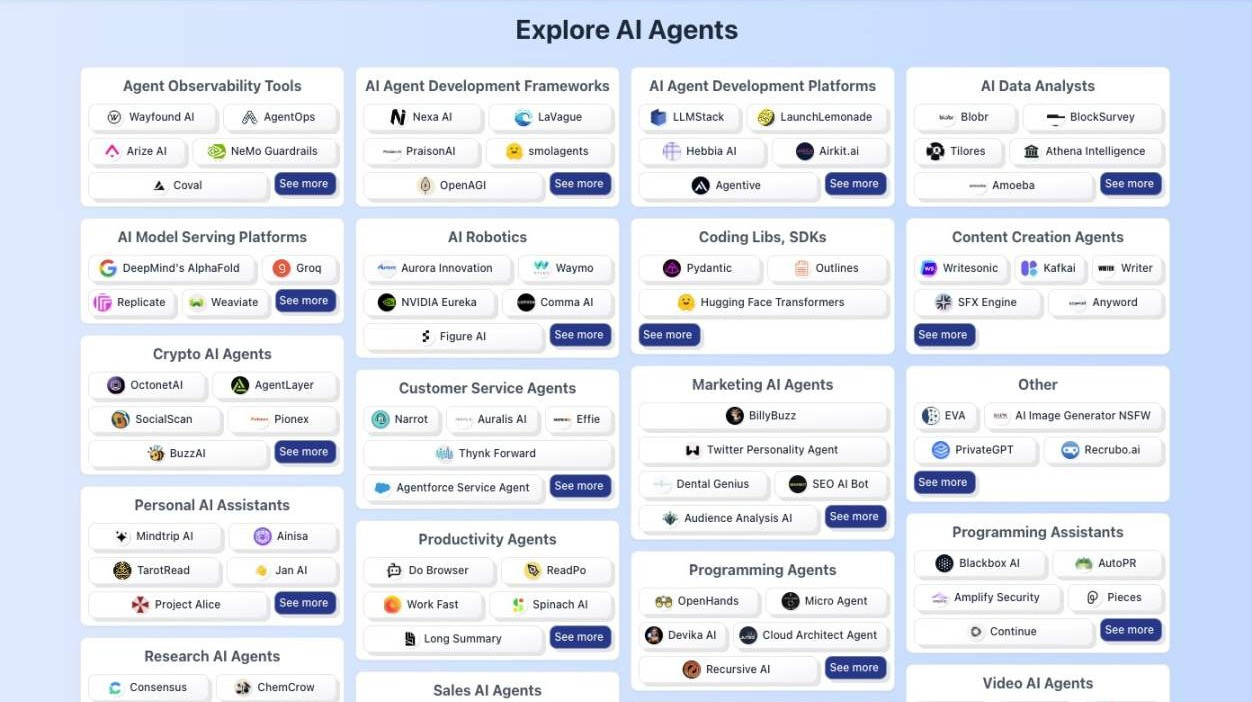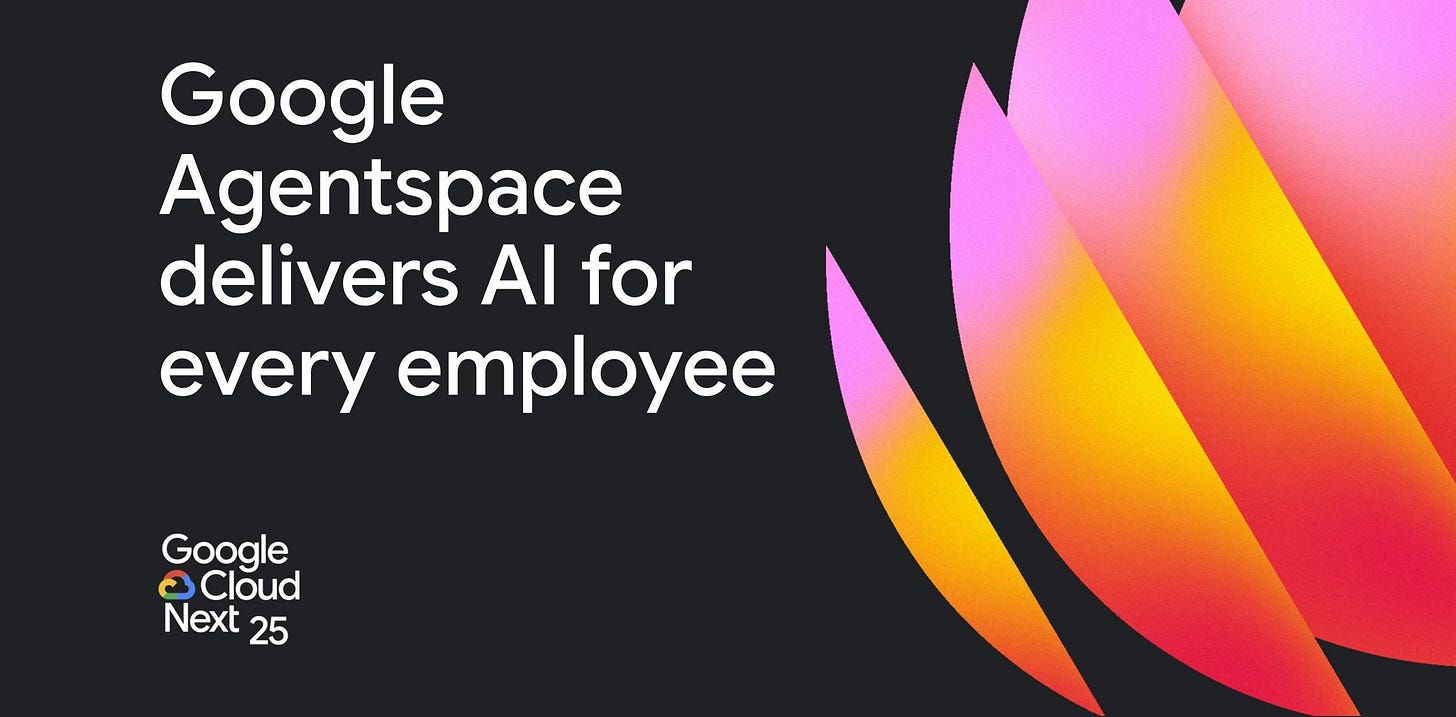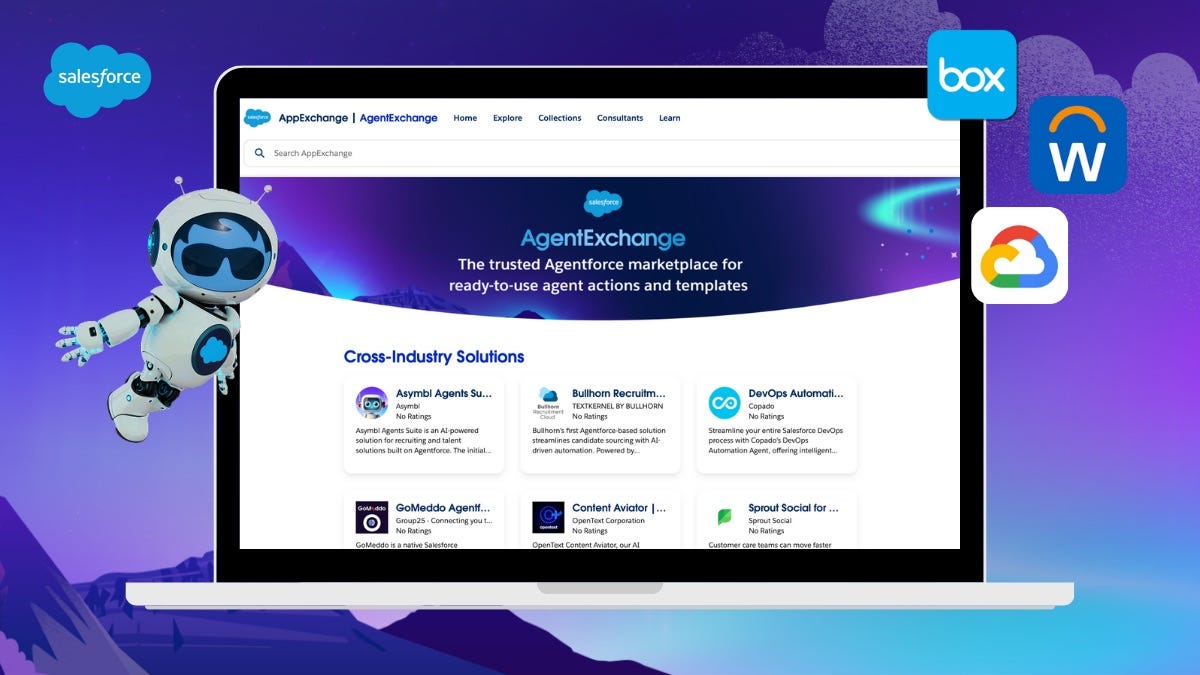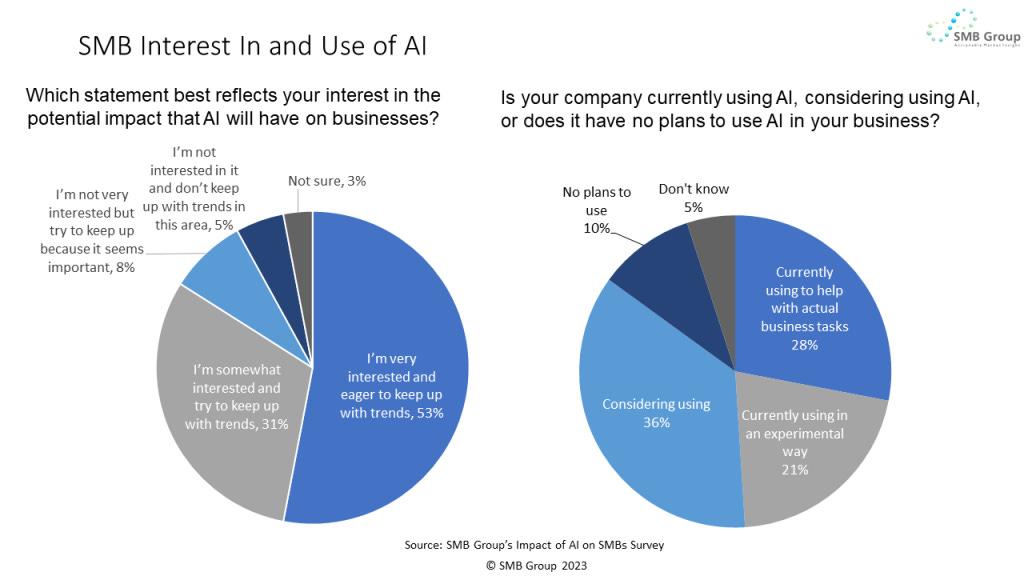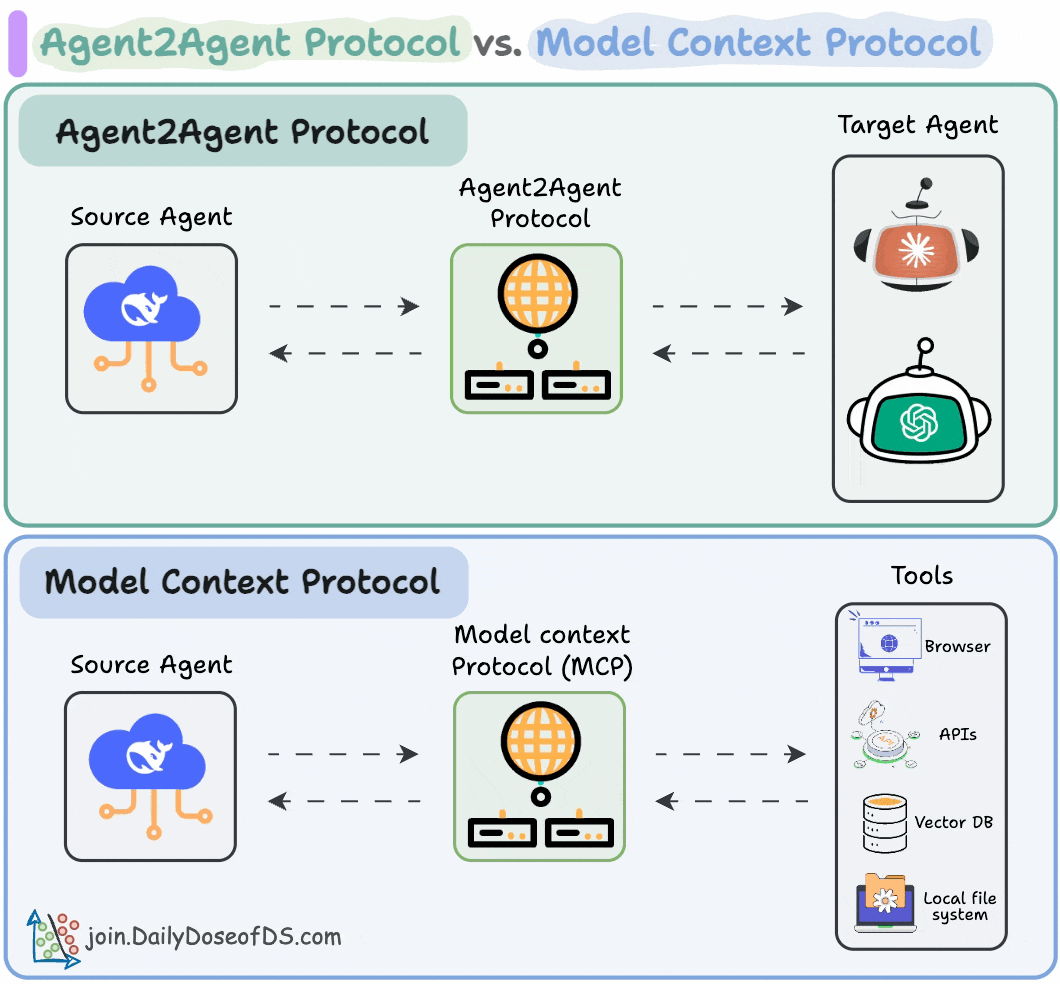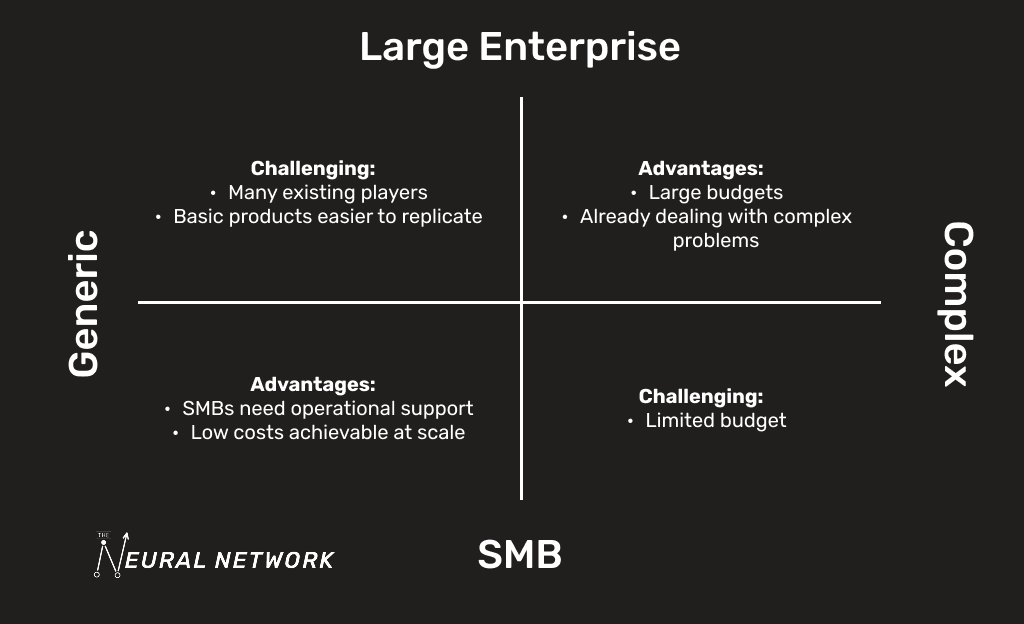What's the Deal With AI Agent Marketplaces?
The AI Agent Economy Is Here. Marketplaces Will Make It Real.
You probably didn’t wake up this morning thinking about AI agent marketplaces. But if you're running a business—or building anything at all—you probably will soon.
Over the next decade, the AI agent economy will emerge as the most important shift in how work gets done, and marketplaces will be the mechanism that makes it accessible, scalable, and real.
Let’s break this down: what are AI agents, why do they need marketplaces, and what this means for you—whether you're deploying, developing, or just trying to stay ahead.
The AI Agent Economy: More Than Just Another App Store
AI isn't simply replacing software—it's turning software into services. The most successful format for matching labor supply with demand in the last two decades has been the marketplace. Small and medium-sized businesses won't buy from individual providers; they'll buy from networks of pre-vetted, on-demand AI services they can trust, just as they do from service providers today.
This transformation creates fundamentally different economics than traditional software:
Value compounds over time: Unlike traditional software that depreciates, AI agents learn and improve from interactions, becoming more valuable the longer they operate.
Democratized access: For the first time, we're seeing technology that can democratize access to sophisticated business services at low prices, at scale.
Network density: Unlike standalone apps, agents derive value from interoperating with other agents, creating powerful network effects.
Labor arbitrage at scale: The compounding value of agents creates a new form of business asset: one that gets better over time, more valuable with each interaction, and stays affordable enough for SMBs.
Why Marketplaces Will Dominate AI Agent Distribution
Marketplaces aren't just convenient - they're economically essential for AI agents to reach mainstream adoption for several structural reasons:
Marketing efficiency: If you try to market each specific AI agent alone, the marketing costs will never justify it. In a marketplace setup, your customer comes to you.
Services vs. software dynamics: Standalone marketplaces don't work well for software, but they excel for services, which is what AI agents fundamentally are.
Historical success patterns: There are proven tactics for building market networks for services, with many existing successes like Upwork, Fiverr, and A.Team.
Opportunity for new entrants: Incumbent labor marketplaces aren't likely to adapt to agents quickly because they risk undermining their own supply side.
Winner-take-most dynamics: Once a marketplace gains traction, they're highly defensible (unless a large technology shift occurs).
The Enterprise Marketplace Landscape
Major technology platforms are rushing to establish the dominant AI agent marketplace for businesses:
Google launched its AI agent marketplace in late 2024 as part of Google Cloud. Announced as AI Agent Space, this is a dedicated category within Google Cloud Marketplace for partner-built AI agents focused on enterprise customers who want to "easily find and deploy" agents that automate complex tasks or workflows on Google's infrastructure.
Through AI Agent Space, a company can browse a catalog of pre-built agents provided by Google's partners (consulting firms, ISVs, startups) and deploy them directly on Google Cloud.
Meanwhile, Salesforce AgentExchange expands the capabilities and ecosystem of Agentforce, Salesforce's digital labor platform. AgentExchange launched with more than 200 initial partners and hundreds of ready-made actions, topics, and templates that have passed rigorous security and customer reviews.
A significant aspect of Salesforce's approach is lowering the technical barriers to creating AI agents. This simplification could enable business users to create their own automation solutions without depending on technical teams.
ServiceNow has been embedding generative AI and agentic capabilities into its product suite (often for IT service management and HR support use cases). In early 2025, ServiceNow announced it had "thousands of pre-configured agents" in its latest release and then made a bold move by acquiring Moveworks (an AI assistant startup).
Consumer AI Agent Marketplaces
While enterprises are moving quickly, consumer-focused marketplaces may be even more transformative:
OpenAI's ChatGPT platform has spearheaded a consumer-facing agent marketplace through the GPT Store. Launched in early 2024, the GPT Store allows users and developers to create, share, and monetize custom ChatGPT-based agents.
These custom "GPTs" can have unique personalities or domain knowledge – for example, agents for negotiating salaries, generating lesson plans, or giving recipe advice. Over 3 million custom GPT agents were created during initial trials, leading OpenAI to open the GPT Store for all users and introduce a revenue-sharing model for creators.
Beyond OpenAI, Cognosys offers a consumer-oriented agent platform that lets users delegate everyday tasks to an AI agent. Rather than a store of many third-party apps, Cognosys provides a single powerful personal assistant that can be instructed to handle multi-step objectives autonomously. Users give high-level objectives (e.g. "summarize my daily emails and highlight what's important") and the agent breaks down the task, interacts with connected apps, and completes it.
SMBs: The Forgotten Majority Driving Agent Adoption
Right now, nearly half of American economic output comes from SMBs. These millions of businesses – from your local restaurant to the neighborhood accounting firm – represent $750B in IT spending. Yet they've been chronically underserved by traditional technology waves. Many still struggle with basic operations, unable to access the expertise and tools that larger enterprises take for granted.
This is where AI agents become truly transformative. For the first time, we're seeing technology that can democratize access to sophisticated business services at low prices, at scale.
SMBs are going to lead the charge of AI Agent adoption because they have everything to gain. These businesses can't always afford to hire a whole marketing agency or an accountant. But they already know the benefits would be 10x on day one. Agents take away the parts of running your business that you can't do — or hate to do. It's an easy sell.
Imagine a small local restaurant gaining access to the same quality of marketing expertise as a national chain, or a solo entrepreneur leveraging financial analysis tools that rival those of major corporations.
The Critical Importance of Interoperability
For AI agent marketplaces to achieve their full potential, agents must be able to work together seamlessly:
As businesses adopt multiple AI agents across different functions and platforms, the ability for these agents to work together and integrate with existing software ecosystems is paramount.
Several initiatives are working to enable this interoperability:
In April 2025, Google introduced the Agent2Agent (A2A) protocol – an open protocol to allow AI agents from different vendors to communicate and cooperate. This effort, supported by Google Cloud and 50+ partners (including Salesforce, SAP, ServiceNow, Workday, and others), aims to ensure that an enterprise can deploy agents from various sources without creating data or workflow silos.
Anthropic's Model Context Protocol (MCP) aims to provide tools and context sharing methods between agents, complementing A2A.
Without these standards, a risk of having distinct marketplaces (one per vendor) is that companies might end up with isolated agents that don't share knowledge or coordinate actions.
Implications for Businesses
If you run a company, AI agent marketplaces will transform how you acquire and deploy technology.
Faster AI Adoption: Businesses can now "shop" for AI agents to handle tasks that previously might require a custom AI project. This dramatically lowers the barrier to entry for implementing AI in operations.
Deployment is often quick – Salesforce claims that with AgentExchange, customers can install and configure agents in a few clicks in a low-code interface. This speed means businesses can experiment with AI in different processes at relatively low cost and risk.
The marketplaces are stocked with industry- or task-specific agents built by experts. This is a boon for businesses in specialized domains. Need an AI that handles insurance claims? Instead of a generic chatbot, you might find one built by a firm with insurance expertise on these marketplaces.
By deploying agents, companies aim to boost productivity (e.g. agents working 24/7 on tedious tasks) and reduce costs (e.g. handling tier-1 support queries without human agents). The marketplaces accelerating this trend could lead to significant operational changes. For instance, an enterprise might eventually have a whole fleet of AI agents – some handling customer inquiries, some managing IT maintenance tasks, some assisting in marketing analysis.
Implications for Developers
For AI agent developers, these marketplaces create new distribution channels and revenue opportunities:
Much like mobile app developers benefited from app stores, AI agent developers now have ready marketplaces to reach users. A small startup that develops a great AI agent for, say, inventory optimization, can list it on a cloud marketplace (Google AI Agent Space) or a CRM marketplace (AgentExchange) and gain visibility to thousands of potential customers.
This is a significant shift from the old model of enterprise software sales, which required heavy marketing and sales teams. Marketplaces handle a lot of the discovery and distribution, letting developers focus on building quality agents.
Developers can earn revenue through these marketplaces either via direct sales, subscriptions, or usage-based billing. For instance, OpenAI's GPT Store allows creators to be paid based on engagement with their chatbots.
Where Things Are Heading
We're still in the early innings, but several trends are becoming clear:
Consolidation will accelerate: Major platforms are acquiring AI assistant startups to bolster their marketplace offerings.
Industry-specific marketplaces will emerge: Vertical-specific marketplaces tailored for industries such as healthcare, manufacturing, and logistics are expected to develop.
Agent-to-agent commerce will grow: Over the next decade, AI agents are expected to handle more direct negotiations and transactions, both in B2B and consumer marketplaces.
Multi-agent orchestration will become standard: In the future, businesses might orchestrate teams of AI agents that handle different subtasks. For instance, an "HR Recruiter" agent might collaborate with a "Calendar Scheduler" agent and a "Interview Question Generator" agent to fully automate a hiring pipeline.
Preparing for the AI Agent Economy
The transition from software to services to autonomous agents represents a fundamental shift in how value is created and captured in the technology industry. For businesses, especially SMBs, this shift democratizes access to capabilities previously available only to enterprises with massive IT budgets.
For developers, it creates new opportunities to build and monetize specialized expertise at scale. And for platforms, it represents perhaps the most important battleground since mobile app stores.
Unlike previous technology shifts, the AI agent economy doesn't just change how we interact with computers—it fundamentally changes who (or what) is performing the work. The companies that recognize this shift early and position themselves accordingly will have significant advantages as the market develops.
Whether you're building agents, deploying them, or investing in the platforms that host them, the time to develop your AI agent marketplace strategy is now. The race to become the "App Store of AI Agents" is already underway, and the winners will shape the next decade of technological innovation.



